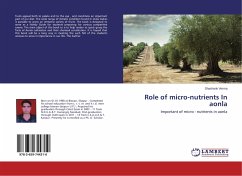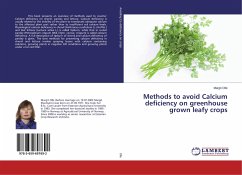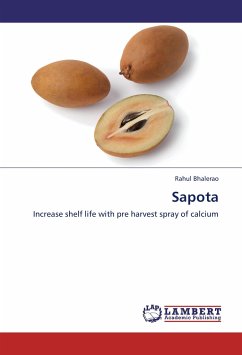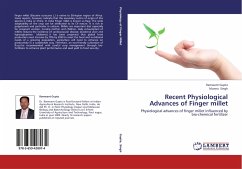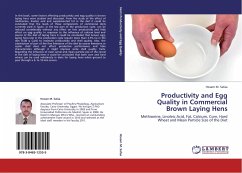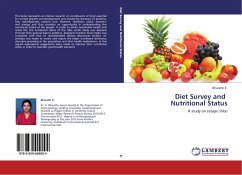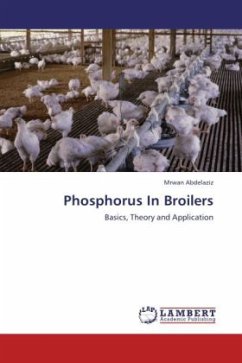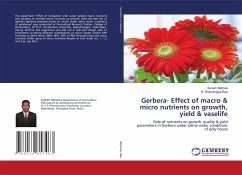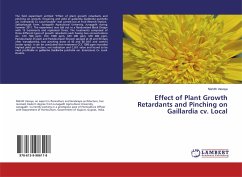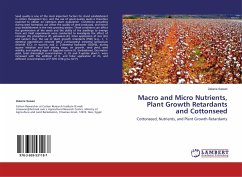
Macro and Micro Nutrients, Plant Growth Retardants and Cottonseed
Cottonseed, Nutrients, and Plant Growth Retardants
Versandkostenfrei!
Versandfertig in 6-10 Tagen
24,99 €
inkl. MwSt.

PAYBACK Punkte
12 °P sammeln!
Seed quality is one of the most important factors for stand establishment in cotton (Gossypium Sp.), and the use of good quality seeds is therefore essential to obtain an optimum plant population. Conditions prevailing during seed formation can affect the quality of seed produced, and hence crop establishment in the next growing season. These conditions can affect the germination of the seeds and the ability of the seedlings to emerge from soil. Field experiments were conducted to investigate the effect of nitrogen (N), phosphorus (P), potassium (K), foliar application of zinc (Zn) and calcium...
Seed quality is one of the most important factors for stand establishment in cotton (Gossypium Sp.), and the use of good quality seeds is therefore essential to obtain an optimum plant population. Conditions prevailing during seed formation can affect the quality of seed produced, and hence crop establishment in the next growing season. These conditions can affect the germination of the seeds and the ability of the seedlings to emerge from soil. Field experiments were conducted to investigate the effect of nitrogen (N), phosphorus (P), potassium (K), foliar application of zinc (Zn) and calcium (Ca), the use of plant growth retardants (PGR) [e.g., 1, 1-dimethyl piperidinium chloride (MC); 2-chloroethyl trimethyl ammonium chloride (CC); or succinic acid 2, 2-dimethyl hydrazide (SADH)], during square initiation and boll setting stage, on growth, seed yield, seed viability, and seedling vigor of Egyptian cotton (G. barbadense). Dry matter yield, total chlorophyll concentration, K, Znand P-uptake plant-1, were increased with the addition of K, and foliar application of Zn, and different concentrations of P (576-1728 g ha-1of P).



